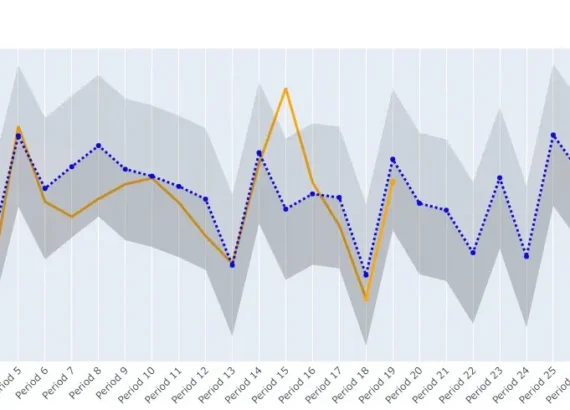License Defense Law: Protecting Professional Credentials

License defense law is a vital aspect of legal practice that focuses on protecting professional credentials. Also the rights of individuals in regulated industries. Whether it’s doctors, lawyers, engineers, pharmacists, or other licensed professionals, maintaining a valid license is crucial for their careers. This blog post provides an overview of license defense law, its significance, and how it ensures the protection of professional licenses.
What is License Defense Law?
License defense law encompasses legal processes and strategies employed to protect licensed professionals against actions that could jeopardize their credentials. It involves representing individuals facing investigations, complaints, disciplinary hearings, and license revocation or suspension. License defense attorneys specialize in this field and have an in-depth understanding of the unique challenges faced by licensed professionals.
Importance of License Defense Law
License defense law serves several crucial purposes, including
Protecting professional reputation: A professional license is a testament to an individual’s competence and expertise. License defense law ensures that licensed professionals are afforded due process and a fair chance to defend their reputation against false allegations or professional misconduct claims.
Preserving livelihoods: For many professionals, their license is essential for their career and livelihood. License defense attorneys strive to protect their clients’ licenses, allowing them to continue practicing their profession and supporting themselves and their families.
Safeguarding public interest: License defense law strikes a balance between protecting professionals’ rights and ensuring public safety. By regulating and enforcing professional standards, it promotes accountability, ethical conduct, and high-quality services, thus safeguarding the public interest.
Common Issues Addressed in License Defense Law
License defense attorneys handle a wide range of issues, including but not limited to
Disciplinary actions: Representing clients during disciplinary proceedings initiated by regulatory boards. Also agencies due to alleged professional misconduct, negligence, or ethical violations.
License reinstatement: Assisting professionals whose licenses have been suspended or revoked in petitioning for reinstatement, demonstrating rehabilitation and commitment to professional standards.
Complaint response: Responding to complaints filed against professionals, conducting investigations. Also preparing a robust defense to protect the license holder’s rights.
Appeals: Advocating for clients in appeals processes if they have received an unfavorable decision from a licensing board or administrative agency.
License Defense Process
The license defense process typically involves the following steps:
Consultation: The licensed professional consults with a license defense attorney who assesses the case, explains the legal process, and outlines potential strategies.
Investigation and preparation: The attorney conducts a thorough investigation, gathering evidence, interviewing witnesses, and building a strong defense.
Negotiation or hearing: Depending on the circumstances, the attorney may negotiate with the licensing board or agency to resolve the matter or represent the professional during administrative hearings.
Appeals, if necessary: If an unfavorable decision is rendered, the attorney can assist in filing an appeal, ensuring all legal avenues are explored.

Choosing a License Defense Attorney
Selecting the right license defense attorney is crucial for a successful defense. Consider the following factors:
Experience: Look for an attorney with a solid track record in license defense cases, preferably in the specific field or industry.
Reputation: Research the attorney’s reputation and read client testimonials to gauge their expertise and effectiveness.
Communication and rapport: A strong attorney-client relationship is essential. Choose an attorney who communicates effectively, provides regular updates, and is responsive to your concerns.
Collaboration with Regulatory Boards
License defense attorneys often work closely with regulatory boards and agencies responsible for overseeing professional licenses. They navigate the complex regulatory framework, understand the board’s procedures. Also advocate for their clients’ best interests within the confines of the law.
Professional Conduct and Ethics
License defense law focuses on upholding professional conduct and ethics. Attorneys help clients understand their ethical obligations and guide them in maintaining compliance with industry standards, rules, and regulations. They can also provide proactive advice to prevent potential issues that may arise in the future.
Mitigating the Impact of Criminal Charges
In cases where a licensed professional is facing criminal charges related to their practice. License defense attorneys play a critical role in mitigating the impact on their license. They work to protect the professional’s rights, navigate the intersection of criminal law and professional licensing, and advocate for the best possible outcome.
Continuing Education and Compliance
License defense law emphasizes the importance of continuing education and compliance with licensing requirements. Attorneys can assist professionals in understanding and fulfilling their continuing education obligations, helping them stay current with advancements in their field and maintain their license’s validity.
Multi-State License Defense Law
For professionals holding licenses in multiple states, license defense attorneys can provide guidance on navigating the complexities of defending against allegations or disciplinary actions across different jurisdictions. They understand the variations in state laws and regulations and can develop strategies tailored to each specific jurisdiction.
Support for Alternative Dispute Resolution
In certain cases, license defense attorneys may explore alternative dispute resolution methods such as mediation or arbitration. These processes offer a less adversarial approach to resolving disputes, potentially resulting in mutually acceptable outcomes while avoiding lengthy and costly legal proceedings.
Education and Prevention
License defense attorneys also play a crucial role in educating professionals about license defense law, their rights. Also the steps they can take to prevent potential issues. By providing guidance on best practices, compliance, and risk management. Also they help professionals maintain their licenses’ integrity and minimize the likelihood of facing disciplinary actions.
Conclusion
License defense law serves as a safeguard for licensed professionals, protecting their credentials, reputations, and livelihoods. With their expertise in navigating regulatory systems and advocating for clients’ rights, license defense attorneys are instrumental in ensuring fair processes, upholding professional standards, and preserving the public’s trust in regulated industries. If you find yourself in a situation where your professional license is at risk, seeking the assistance of a qualified license defense attorney can make a significant difference in protecting your career and future prospects.
License Defense Law and Best Water Rowing Machines may seem unrelated, but both play important roles in their respective areas. License Defense Law ensures the protection of professional credentials and helps licensed professionals navigate legal challenges to safeguard their reputations and careers. On the other hand, when it comes to fitness and exercise, water rowing machines are highly regarded for their effectiveness and low-impact nature. These machines simulate the resistance and smooth motion of rowing in water. Also providing a full-body workout that engages multiple muscle groups. By understanding and appreciating the significance of License Defense Law and utilizing the best water rowing machines, professionals can prioritize both their legal protection and physical well-being.








